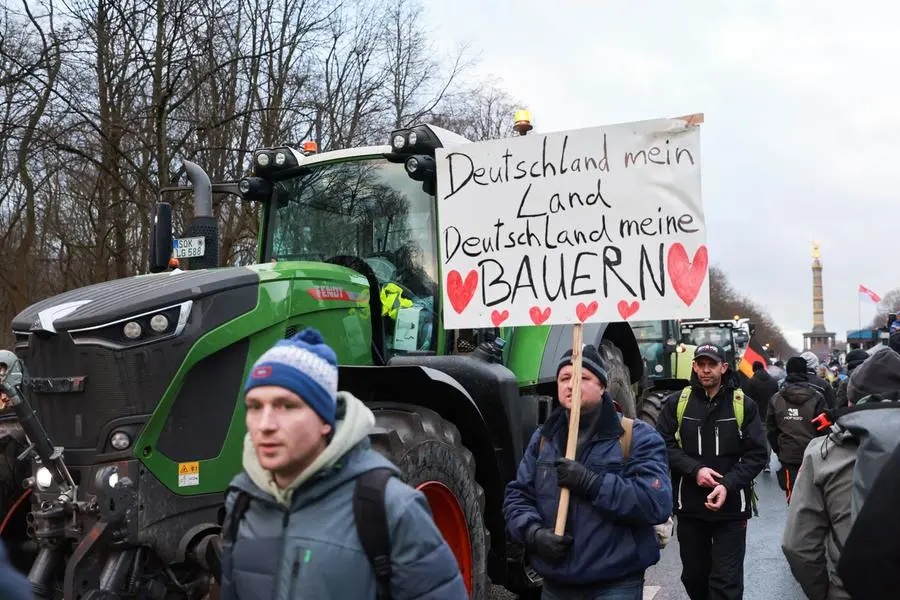PHOTO
Farmers and their tractors converged on Berlin from every corner of Germany on Monday morning to join a giant protest demanding a rethink of plans to tax them more.
Some 3,000 tractors, 2,000 trucks and an estimated 10,000 people crammed the avenue leading to Berlin's Brandenburg Gate for a mass rally capping a week of protests against the government.
Tractors and trucks were parked nose-to-tail along the avenue and thousands of farmers wrapped up against the bitter cold milled around, waving German flags.
The protests have heaped pressure on Chancellor Olaf Scholz's coalition as it struggles to fix a budget mess and contain right-wing forces.
By Sunday evening, police warned that the avenue was already full and called on protesters to gather at alternative locations, including by the Olympic Stadium in the western district of Charlottenburg.
Facing a fierce backlash, the government has already agreed not to scrap a tax rebate on new agricultural vehicles and to spread the scrapping of an agricultural diesel subsidy over several years.
But farmers, with the vocal backing of the opposition conservatives and the far-right, say this does not go far enough.
"Farmers will die out," said farmer Karl-Wilhelm Kempner on Sunday as he boarded a bus in Cologne heading for the demonstration. "The population must understand that far more food will be imported" if subsidies are not restored.
The government has taken a conciliatory stance amid concerns that political debate in the country is becoming radicalised and that demonstrations could turn violent.
Finance Minister Christian Lindner will address the protest from a stage set up in front of the Brandenburg Gate and coalition party leaders have invited leaders of the demonstrations for talks.
They themselves are at odds over how best to meet farmers' demands: Agriculture Minister Cem Ozdemir, a Green, has suggested financial rewards for humane animal husbandry, while some Social Democrats want to offer higher produce prices, and Lindner's Free Democrats want to cut administrative overheads.
Disruption caused by protests and train strikes last week hurt coalition parties in the polls and propelled the far-right Alternative for Germany party to new heights.
In a video podcast on Saturday, Scholz said the government had listened to farmers' demands and compromised.
"We've taken the farmers' arguments to heart and revised our proposals. A good compromise," he said. (Reporting by Thomas Escritt and Linda Pasquini; Editing by Tom Hogue and Ros Russell)





















